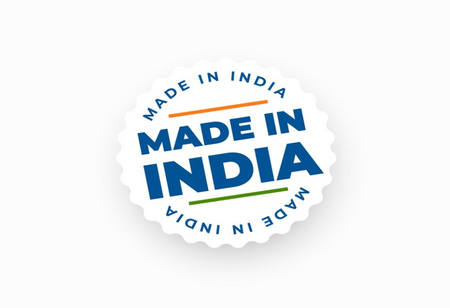Made-in-India Tesla is Getting Closer as Agreement with Musk's Co-founder Begins
By Consultants Review Team
 According to persons familiar with the Indian government's thinking, India is nearing an agreement with Tesla Inc. that would allow the US manufacturer to begin shipping electric vehicles to the nation next year and establish a facility within two years.
According to persons familiar with the Indian government's thinking, India is nearing an agreement with Tesla Inc. that would allow the US manufacturer to begin shipping electric vehicles to the nation next year and establish a facility within two years.
One of the persons who declined to be identified because the conversations are confidential suggested an announcement could come at the Vibrant Gujarat Global Summit in January. Another source claimed that the states of Gujarat, Prime Minister Narendra Modi's home state, Maharashtra, and Tamil Nadu are being considered because they already have well-established ecosystems for electric vehicles and exports.
According to one source, Tesla would commit an initial minimum investment of roughly $2 billion in any facility and would attempt to grow purchases of car parts from the country to as much as $15 billion. According to the source, the US manufacturer would also want to manufacture certain batteries in India to reduce costs.
According to the sources, no final decision has been taken and the plans may change. Tesla CEO Elon Musk stated in June that Tesla expects to make a "significant investment" in India and that he plans to visit in 2024. Representatives from India's Ministry of Heavy Industries, which controls the vehicle industry, as well as the finance and commerce and industry ministries, did not reply to calls for comment. Tesla also did not respond to a comment request.
Breaking into the world's most populous country, where demand for electric vehicles is increasing among aspirational middle-class buyers, would be a windfall for Tesla, which already has plants in the United States, China, and Germany. Modi's government has been striving to enhance domestic EV production and encourage faster adoption of cleaner transportation.
Despite these efforts, India's EV sector has yet to take off, with battery-powered vehicles accounting for only 1.3% of total passenger vehicle sales in 2018, according to BloombergNEF. Buyers are hesitant to make the switch due to the high upfront cost of electric vehicles and a scarcity of charging facilities. Because of the high taxes, Tesla does not import automobiles directly into India. According to some sources, when the country's first locally manufactured vehicles go on sale, they might cost as little as $20,000 each.
Trade Minister Piyush Goyal, who visited Tesla's Fremont, California, facility earlier this month, stated in September that Tesla plans to nearly quadruple its procurement of car parts from India this year to $1.9 billion. Last year, the electric carmaker sourced $1 billion in parts from India, he said at an event in New Delhi.
Following a year-long stalemate, Tesla and India, the world's third-largest vehicle market, restarted talks in May. Musk has criticized India's high import duties and EV rules, and India has recommended Tesla not to sell cars built in China, the country's political opponent. India is reportedly rumored to be considering decreasing import taxes for international EV manufacturers for a five-year term if such companies commit to establishing local manufacturing.




